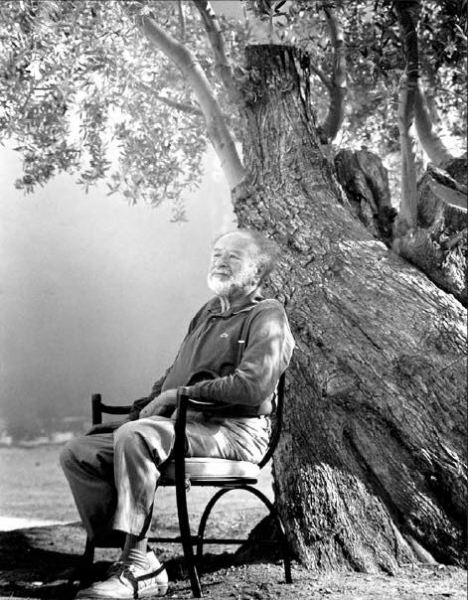Bruno Kreisky
Bruno Kreisky (1911 – 1990)

Bruno Kreisky stands undoubtedly as the most prominent and influential politician to emerge in post-war Austria. For some thirty years, he helped to shape his country’s politics and raise its status in the world, first as Under Secretary of State (1953-1958), as Foreign Minister (1959-1966), then as leader of the opposition Social Democratic Party, and finally as Chancellor from 1970 to 1983. During his long tenure of public office, Austria achieved unprecedented levels of prosperity, whilst he promoted electoral, educational and legal reform and weathered the occasional scandal. Kreisky tried simultaneously to broaden and deepen democracy in Austria and to intensify the dialogue with the international community.
Bruno Kreisky was born in Vienna, Austria, on January 22, 1911, into a middle class Jewish family. Angered by the poverty and violence around him in Austria between the Wars, Kreisky joined the “Socialist Working Youth” (SAJ) when he was 16. During the authoritarian Schuschnigg-Regime he was arrested in 1935 and imprisoned for 1 ½ years. The Nazi regime put him back into a Gestapo jail in March 1938 and forced him to immigrate in September of that year to Sweden, where he married Vera Fürth. Despite his efforts to return to Austria in 1946 he was kept out of the country as a diplomat in Sweden and returned home only in 1951. Kreisky at that point started his political career as advisor to the then President Theodor Körner. Having been appointed Undersecretary of State in the Foreign Affairs Department of the Austrian Chancellery, he participated in the decisive negotiations leading to the Austrian State Treaty of 1955 and the Neutrality Law, ending a ten year post-war period of four-power allied administration of Austria.
His analytical mind and intelligence were much appreciated by statesmen in East and West as well as in the academic world, as were his deeply felt humanism, integrity, untiring advocacy of tolerance and social justice, and his earnest sense of responsibility. These won him the trust and admiration of the leading international figures of his era, including Willy Brandt, Indira Ghandi, John F. Kennedy, Charles de Gaulle, Anwar al-Sadat, Henry Kissinger and François Mitterrand. His international connections and his position as leader of a neutral state allowed him to assume the role of honest broker in international peace, human rights, and development initiatives.
While heading the government from 1970 to 1983, Bruno Kreisky strode the international stage as an advocate of Palestinian self-determination, of European détente and of North-South dialogue. He worked continuously towards realising the Conference of Security and Cooperation in Europe, and never gave up his interventions in favour of suppressed opposition leaders in Communist countries. As a result of such activity, Kreisky was respected and praised by every U.S. and Soviet administration from Kennedy to Brezhnev, despite his support for the containment of Soviet communism and sharp critique of U.S. Cold War policies and arms build-up under President Reagan.
In his late years he realized that the world had completely changed and that Europe would be recreated after the end of the Cold War, and he was therefore emotionally very sad not to be able to participate in the shaping of a new era.
Bruno Kreisky died on 29 July 1990. In the eulogy delivered at Bruno Kreisky’s funeral, the German Statesman and Nobel Prize recipient Willy Brandt remarked, “What do we do with this, our debt of gratitude? I believe that we discharge it by keeping alive as much as possible of that for which he strove.” This statement is a powerful dictum for the future work of the Bruno Kreisky Forum. (© Oliver Rathkolb)
